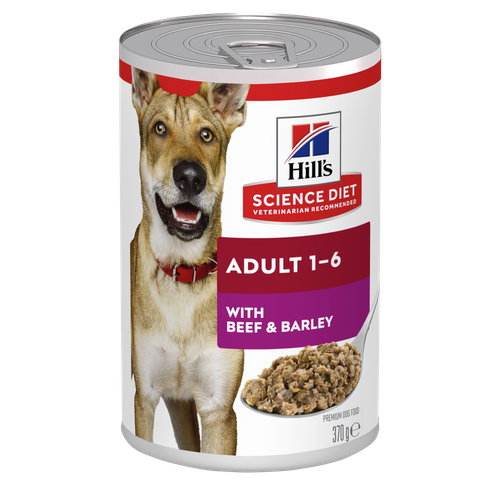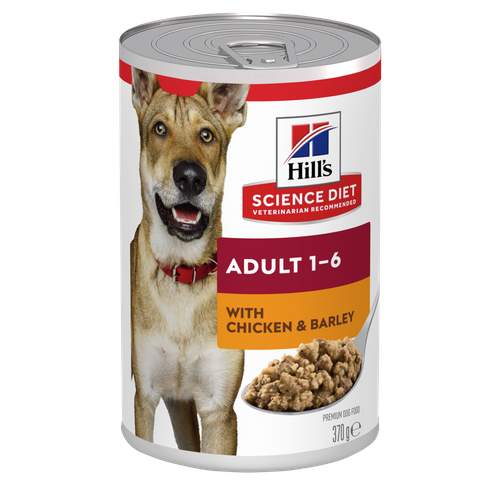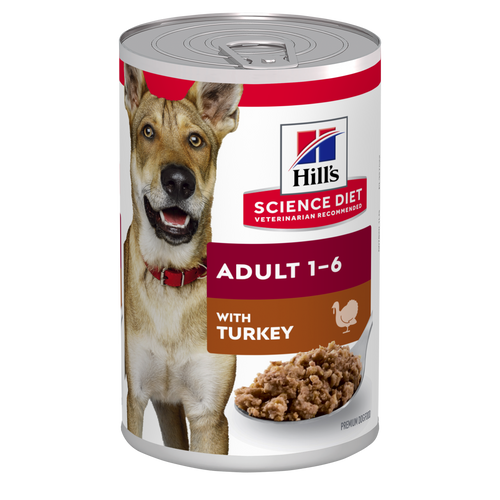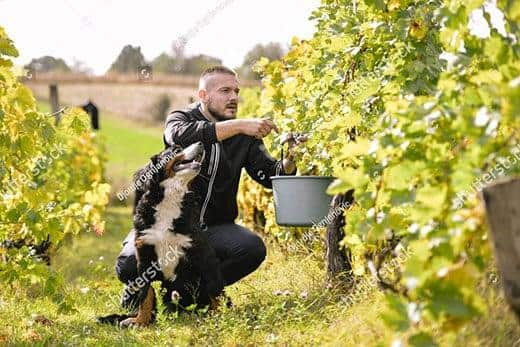
-
Find the right food for your petTake this quiz to see which food may be the best for your furry friend.Find the right food for your petTake this quiz to see which food may be the best for your furry friend.Health CategoryFeatured products
 Adult with Beef & Barley Dog Food
Adult with Beef & Barley Dog FoodBeef & Barley recipe with precisely balanced nutrition to keep Adult dogs active and healthy
Shop Now Adult with Chicken & Barley Wet Dog Food
Adult with Chicken & Barley Wet Dog FoodChicken & Barley recipe with precisely balanced nutrition to keep Adult dogs active and healthy
Shop Now Adult with Turkey Wet Dog Food
Adult with Turkey Wet Dog FoodTurkey & Barley recipe with precisely balanced nutrition to keep Adult dogs active and healthy
Shop NowFeatured products Adult Chicken & Spinach Casserole Cat Food
Adult Chicken & Spinach Casserole Cat FoodWith delicious chunks in a decadent gravy
Shop Now Sensitive Stomach & Skin Chicken & Beef Dinner
Sensitive Stomach & Skin Chicken & Beef DinnerGourmet daily nutrition, carefully made. Tasty chunks with chicken & beef in a decadent gravy. Supports digestive health, nourishes skin and promotes a lustrous fur.
Shop Now Adult 7+ Tender Tuna Dinner Cat Food
Adult 7+ Tender Tuna Dinner Cat FoodWith delicious chunks in a decadent gravy
Shop Now -
DogCat
- Cat Tips & Articles
-
Health Category
- Weight
- Skin & Food Sensitivities
- Urinary
- Digestive
- Kidney
- Dental
- Serious Illness
-
Life Stage
- Kitten Nutrition
- Adult Nutrition
Featured articlesHill's Australian Bushfire EffortsRead More Water
WaterWater is the most important nutrient of all and essential for life. Animals can lose almost all their fat and half their protein and still survive, but if they lose 15% of their water, it will mean death.
Read More Pet Food Storage Tips
Pet Food Storage TipsWhere you store your cat and dog food can make a big difference in the quality and freshness once it is opened. Here are some common questions and recommendations for optimal storage for all of Hill’s dry and canned cat and dog food.
Read More -


As a pet parent, you may have heard that grapes are a no-go for dogs. And it's true! While grapes are a healthy and delicious snack for humans, grapes and their dehydrated relative, raisins, are off limits for pups. But why are grapes bad for dogs? Learn more about how grapes can harm your furry family members.
Why Are Grapes Bad for Dogs?
According to The Australian Animal Poisons Helpline, if your dog ingests grapes or raisins, it may lead to kidney failure which can be life-threatening. In fact, dogs who have snacked on grapes or raisins are at risk of total kidney failure within 48 to 72 hours of eating this forbidden fruit.

Because of their decreased water content and concentrated remaining ingredients, raisins do pose a considerably heightened risk to dogs. An exact formula of how many grapes per pound of body weight are fatal to dogs has not yet been determined, but as few as four to five grapes were implicated in the death of an 18 lb (8.16 kg) dog, according to Merck Veterinary Manual.
My Dog Ate Grapes: What Symptoms Should I Watch For?
Most affected dogs develop the first signs of toxicity within 6 to 12 hours. Clinical signs that may occur after a dog has eaten grapes include:
- Vomiting
- Diarrhoea
- Extra jittery in the early stages
- Lethargy as time passes
- Anorexia
- Abdominal pain
- Weakness
- Dehydration
- Increased urination in early stages
- Shivering
- Not urinating as the kidneys shut down
All dogs are susceptible to grape and raisin toxicosis — whether they're male or female, neutered or intact, Chihuahuas or Great Danes, puppies or senior dogs. Ingestion of only a few raisins can be deadly, depending upon your dog's size and other factors, many of which are not understood. Dogs with compromised kidney conditions are more at risk for grape and raisin toxicity.


Tasty Tips
How Soon Should I Seek Veterinary Care?
Ingestion of grapes or raisins in dogs is an emergency warranting immediate veterinary intervention. If the grape ingestion has occurred within the last hour, your veterinarian will likely attempt to induce vomiting to remove the grapes from their system. If the grape recovery via vomiting is unsuccessful or if several hours have passed since the grapes were ingested, your veterinarian will likely recommend hospitalisation for IV fluids and careful monitoring of kidney values. In most cases, they will recommend keeping them in the hospital through the entirety of the high risk period (i.e. roughly about 48-72 hours).

Diagnosis often involves history or evidence of ingestion is proof enough of the grape or raisin toxicity. Consistent clinical signs are valuable clues for your vet to gauge the level of damage done. It is important to remember diagnosis may take time and that there are no specific tests to confirm grape or raisin poisoning. Basic blood work and urinary tests are essential to reveal abnormal kidney function.
Prognosis After Grape/Raisin Toxicosis: What to Expect
After your dog is sent home, periodic laboratory tests may be recommended to monitor your dog's kidney function. These tests are noninvasive and typically consist of bloodwork or urinary tests. Monitoring may be needed for several weeks, as it can take time for kidney function to return to normal.
Dogs that show no clinical signs may have a great prognosis if they're treated early. However, the prognosis may be uncertain if there is a delay in treatment or if there's a possibility for kidney failure. It may often take several days or weeks for kidney function to return to normal; however, in some cases, kidney function may never recover. Thankfully, many dogs can live healthy happy lives even with decreased kidney function, with a modification of food and supplements added to their daily routine. If your veterinarian diagnoses decreased kidney function in your dog, be sure to ask your veterinarian about potential therapeutic dog foods that help with kidney support.


Dr. Laci Schaible is a small animal veterinarian, veterinary journalist, and a thought leader in the industry. She received her Doctor of Veterinary Medicine from Texas A&M University and her Masters in Legal Studies from Wake Forest University.
Related products

Supports healthy joints, lean muscle, and beautiful coat for large breed dogs

Supports energy level and beautiful coat in mature dogs who prefer smaller kibble

Supports lean muscle for dogs who prefer smaller kibble

Clinically proven kibble technology to reduce plaque & tartar build-up, specially designed for small & mini dogs
Related articles

Extra pounds can cause problems for your dog's overall health. Learn the signs that your dog might be overweight, and what you can do to manage its weight.

Learn how today's wet dog food blends have gotten a face lift, and how you'll provide your dog the nutrition he needs in the form he loves.

Selecting the right food for your puppy is a key to quality nutrition and a long, healthy life., Learn more about how to select the right puppy food.

As small and toy breed dogs age, their nutritional needs change.

Put your dog on a diet without them knowing
Our low calorie formula helps you control your dog's weight. It's packed with high-quality protein for building lean muscles, and made with purposeful ingredients for a flavorful, nutritious meal. Clinically proven antioxidants, Vitamin C+E, help promote a healthy immune system.
Put your dog on a diet without them knowing
Our low calorie formula helps you control your dog's weight. It's packed with high-quality protein for building lean muscles, and made with purposeful ingredients for a flavorful, nutritious meal. Clinically proven antioxidants, Vitamin C+E, help promote a healthy immune system.

